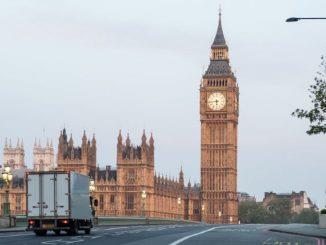
Plans to raise the London congestion charge by 30% and extend it to evenings and weekends, has been slammed by the logistics industry.
London Mayor Sadiq Khan confirmed today (16 June) that the congestion charge will rise to £15 from 22 June to tackle rising levels of traffic in central London.
The changes will rise from £11.50 to £15 and be extended from 7am-6pm on weekdays to 7am-10pm, seven days a week.
TfL said the move is in response to fears that traffic could double in the capital as workers observe government advice to avoid travelling on public transport.
It said the new hours and higher levy could cut car journeys by a third, reduce exhaust emissions by 11% and make walking and cycling safer.
The increase in the congestion charge was also one of the terms of the government’s £1.6bn coronavirus bail-out for TfL last month.
Both the FTA and RHA slammed the decision to include lorries in the increased charges.
Read more
- London mayor threatened with legal action over raising congestion charge
- Restarting and increasing London congestion charge “insane”, claims ELB Partners MD
- TfL suspends road congestion charges during coronavirus crisis
Describing the hike as a tax on the logistics industry, Natalie Chapman, FTA head of urban policy, added: “Logistics businesses have been working tirelessly to deliver the food, medical supplies and other essential items the capital needs during the Covid-19 pandemic.
“However, to reward this hard work – completed under very challenging circumstances – with such abrupt and significant changes to the London Congestion Charge is extremely disappointing to the FTA and its members.”
She also raised concerns about TfL’s failure to give any indication as to how long the changes will last. “Permanent implementation should be out of the question,” she added.
RHA policy director Duncan Buchanan echoed Chapman’s criticism of the congestion charge hike and described TfL’s consultation on it as a “box ticking exercise”.
Buchanan added: “We are very disappointed at the reintroduction of the scheme for lorries. These are essential road users and to introduce these charges on them at a time of such severe pressure is a disgrace.
“Lorries should be exempted – these are essential journeys, not a matter of choice and so this is nothing more than a tax on businesses that are already struggling as a result of the pandemic.”













![DP World Modal Shift Programme Image[72690]](https://d2cohhpa0jt4tw.cloudfront.net/Pictures/100x67/4/9/7/17497_dpworldmodalshiftprogrammeimage72690_781836.jpg)
